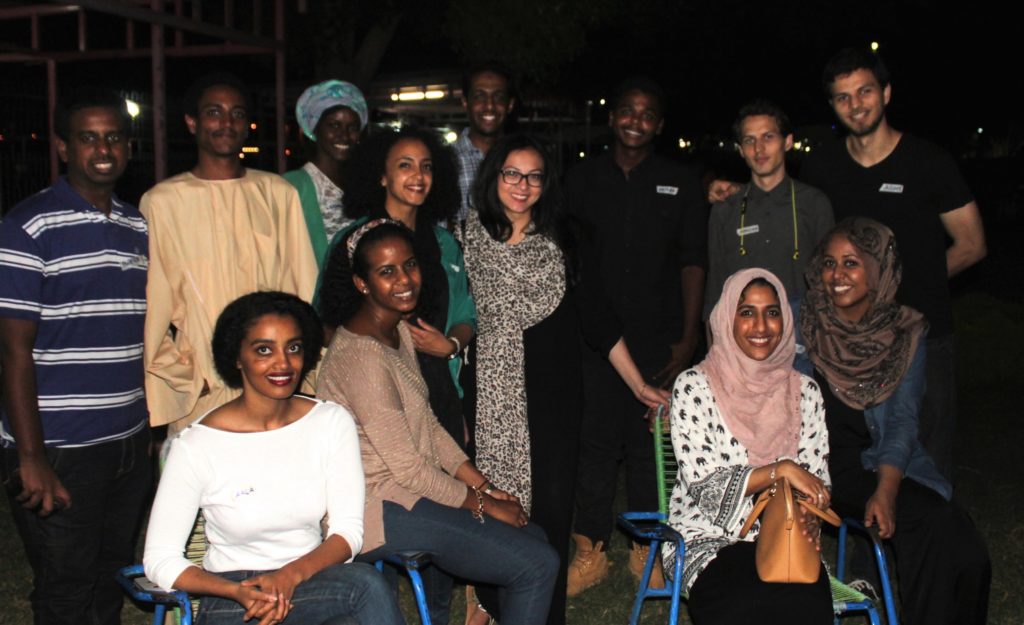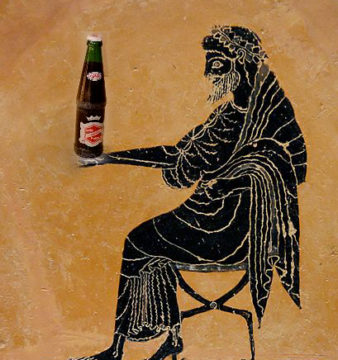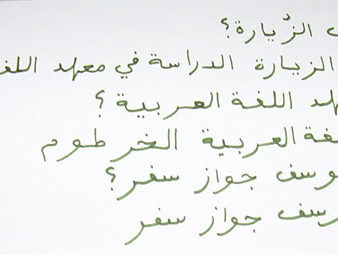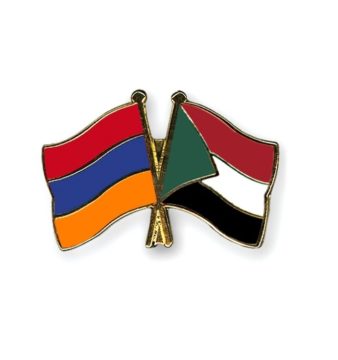Building a community with Sudan Repats
Every other week Rushaa Hamid looks at groups and people grappling with a Sudanese identity outside of the mainstream, publicised one. This week in a special extra-long column she interviews Reim Atabani of Sudan Repats about the group.
Going back to Sudan can be daunting – even if you’ve been there before – if you’re Sudanese but have spent a long period of time outside the country. There is perhaps no stranger feeling than simultaneously being both familiar and a foreigner all at one.
Sudan Repats are a collective of young Sudanese who lived in the diaspora and decided at different times to come back to the country. Recognising their unique experience they are in the process of creating an active community that highlights diaspora achievement, updates you on the latest slang, and most importantly creates an environment to prevent people from being discouraged from coming back for holidays or to live.
As someone that slips into the definition of a repat – living half my childhood in the UK – I appreciated that when I recently went to live in Khartoum for a few months someone else had thought to create a group to help people navigate this strange situation, and better reacquaint themselves with their homeland. The envy of seeing people share their amazing experiences on the hashtag #DisasporaDec was also mixed with a sense of relief that next year I had something great to look forward to.
I had an opportunity to have a discussion with Reim Atabani (@reimnotreem), one of the founders of the group about Sudan Repats and their plans for the future.
***
How would you define a “repat”, and what makes a repat different?
At first the idea of a repat was based on Sudanese people who had grown up outside of Sudan and moved here.
Some people use that definition, but I now think of a repat as more broadly encompassing any Sudanese person who spent a period of time outside Sudan and came back. That time abroad creates a shared experience, including the way it changes your relationship with Sudan. I also take the word to mean any diaspora for the time they’re in Sudan, even just for a visit. So for me it’s not a technical definition – it’s open to anyone who identifies with the experience.
Also, the word “repat” is an irreverent play on the term “expat”, but is not meant to have the same connotations of being from somewhere else – it’s quite the opposite. It’s about reclaiming a belonging to a place. Some people misunderstand it and accuse me of starting an elitist club for Sudanese who don’t want to hang out with other people, but that’s so far from the truth! The point is to create a sense of belonging, to be unapologetically Sudanese even if we don’t tick all the boxes.
What is your personal repat journey?
I was born and raised in the US, and only visited Sudan once as a kid. I literally knew nothing about it.
I visited during college and loved it, but was annoyed that everyone I met told me how lucky I was to live outside abroad, and how they would leave in a second. I didn’t know much about the country, but it made me sad that people didn’t seem to see any value in this place that I’d been dreaming about my whole life. I remember waking up one day my senior year of college and deciding that I couldn’t imagine living the rest of my life without knowing where my parents grew up, who my family was, or the Sudanese culture or language. It’s a very isolating thing.
Anyway, after I graduated, my dad came to visit Khartoum for the first time in over 20 years, so I decided to tag along and I ended up staying. Those first six months were probably the best of my life. Of course I romanticized Sudan in my ignorance, but I think that helped me make the leap. I figured I would stay a year or so, but it’s been 7 years, and I have no regrets about coming – I’ve gained so much. I recognize how fortunate I am that it’s been an incredible experience. My family is wonderful, plus I got married, which helped me to build a life here on my own terms.
So, part of me came because I wanted to understand why people leave, and prove through my own experience that Sudan has its own things to offer – even for someone who doesn’t have to be here, which, admittedly, was kind of naive. And part of me came because I wanted to learn and experience all the things I felt I missed out on growing up abroad.
Where did the idea to set up Sudan Repats come from?
I noticed that there were others who also moved to Sudan after growing up abroad, and we all had similar experiences. People like to make fun of us for being supposedly spoiled or clueless, but I don’t think the stereotype holds. So many repats are genuinely interested in understanding Sudan better, and appreciate what it has to offer.
At the same time, we have certain limitations that make the country less accessible in a lot of ways (language, not knowing the city or having large networks), and experiences that can be frustrating. Sudan is just really difficult to figure out. So I thought we could share what we know and help each other out, while normalizing the diaspora and repat experience.
I kept waiting for someone to start an initiative around Sudan’s diaspora, but when that didn’t happen, I thought I might as well. One trigger was honestly the wave of medical students who left to ISIS after coming to Sudan from abroad – it reminded me how confusing it can be to grow up in the diaspora, especially in Western countries, and how isolating it can feel to realize you don’t fit into your homeland either.
What sort of activities does the initiative focus on (and how was Diaspora December)?
This started as a pilot project, Diaspora December, when my friends and I organized a series of activities to try to help visiting diaspora experience Sudan on their own terms. The idea was that a lot of people visit during winter, but often are stuck at home or aren’t sure where to go. It’s so difficult to know or navigate Sudan – it’s not the same as people whose parents are from countries with tourism since there is so little information online.
So we wanted to show a different side of Sudan, make it fun, and introduce each other to people with similar experiences. It ended up being incredible, just meeting people and seeing Sudan in a different way.
The initiative has continued online, but without activities since then. It takes a lot of time to organize and I was really lucky to have great friends who helped, but I want to build a community before maybe doing events again. So right now it’s focused on normalizing the Sudanese diaspora experience through conversations and crowd sourcing stories, with some information on places to go in Sudan.
What is the unique value repats bring when returning to Sudan?
I’m not sure what value we bring, to be honest. People like to say that we have so-called international skills and education that can benefit the country, and it might be true, but I think that approach to Sudan can be limiting in a lot of ways. (Also, none of that matters if we aren’t able to interact effectively with the place and people.)
I’m more focused on what Sudan can offer us. I think it’s more interesting to explore that side of the relationship.
What is your own relationship to the idea of “Sudaneseness”?
My sense of being Sudanese has changed throughout my life. Growing up in the US, without a Sudanese community, I never had a strong sense of identification with Sudan. I didn’t know anything about the country or its culture. And I think that’s what motivates me – unless you know about Sudan, how do you really feel Sudanese? What do you identify as? I think the idea of belonging is so important, and that’s what being Sudanese means to me.
Obviously not everyone needs to come to Sudan to feel Sudanese – it was just my particular experience. And I know some diaspora don’t care about Sudan and are happy to identify as whatever country they’re from, but I’m not convinced that it feels complete.
What do you hope to do in the future with Sudan Repats?
There’s so much that can be done. Mostly I want to launch a blog and use it as a platform to share everyone’s tips on visiting Sudan, experiences around being Sudanese, and other stories from the diaspora and homeland. Definitely not just from my perspective, but from others’ too.
Our community is really transient – everyone is always coming and going in Sudan, and even I’m moving to the US soon, so that’s why it’ll focus online. Eventually, I’d love to organize more events and turn it into a physical space in Khartoum (in the distant future), a hub for Sudanese visiting Sudan.
How can one get involved with the initiative?
I love hearing from people! The project is about making sense of Sudan from the diaspora, so hopefully this is just a starting point for everyone sharing their experiences and knowledge and stories.
Please reach our to me if you want to help at all, even if you’re not sure how. I’ll figure it out. I think there’s so little out there for us on Sudan that we have to create our own guides and narrative. In that sense, I think everyone has something to offer.
You can find out more about Sudan Repats by visiting their website (dec.sudanrepats.com), following them on Twitter (@sudanrepats) and Instagram (@sudanrepats), or emailing them at sudanrepats@gmail.com
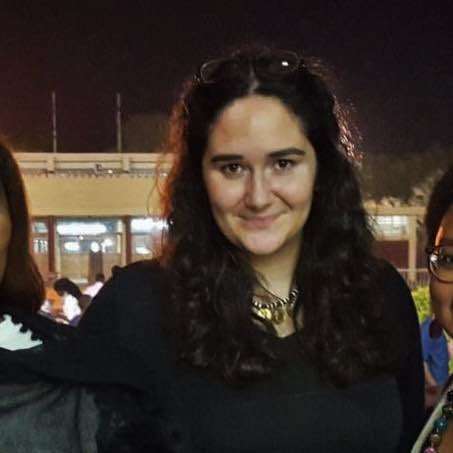 Rushaa is a (sort of) Sudanese writer whose work appeared in The Independent, BuzzFeed and Dazed. She can be found on Twitter or at her website.
Rushaa is a (sort of) Sudanese writer whose work appeared in The Independent, BuzzFeed and Dazed. She can be found on Twitter or at her website.

